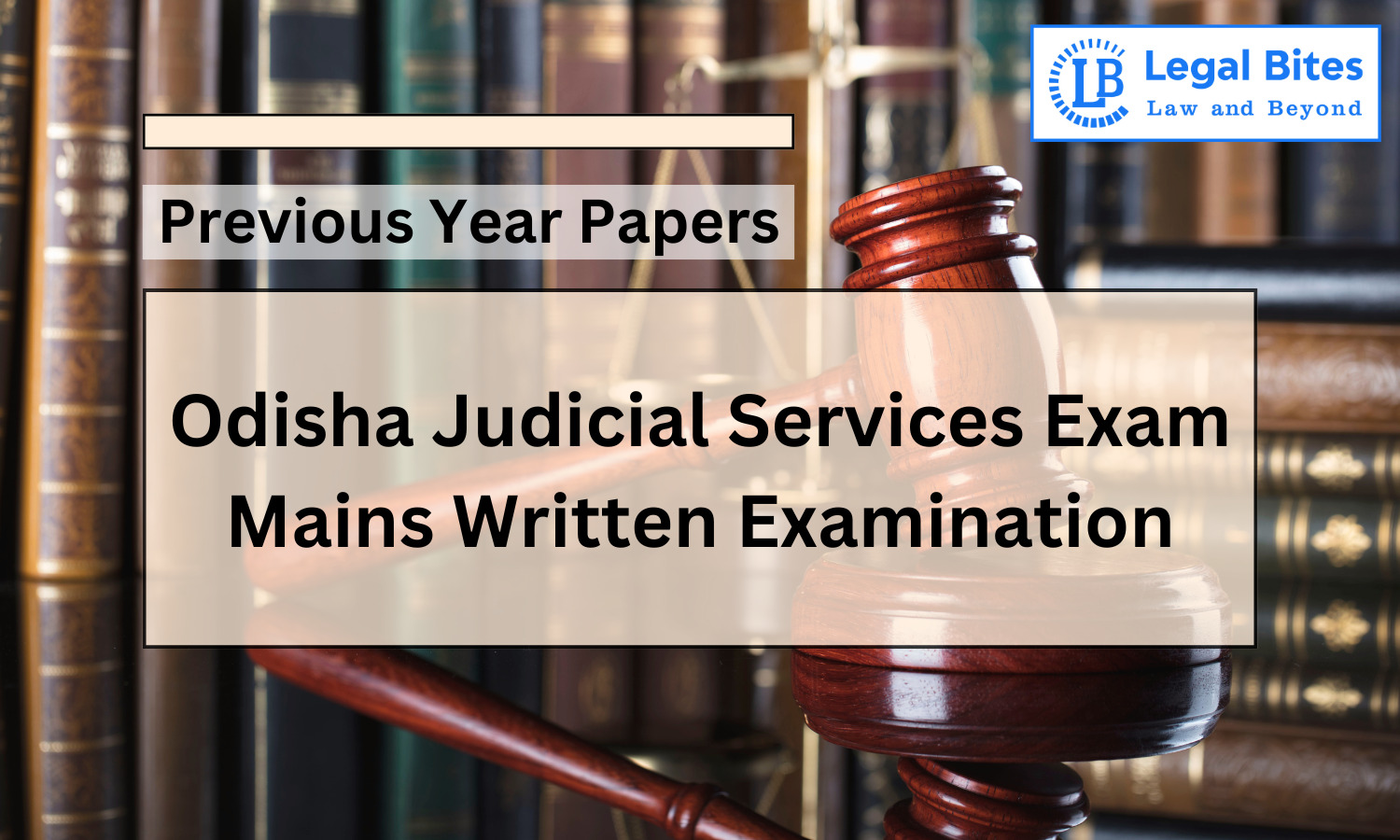
Odisha Judicial Services Exam Mains 2019 Paper II | Procedural Law
Practicing authentic question papers gives candidates a real sense of the exam pattern and question style. Below is the Odisha Judicial Services Mains 2019 Paper II (Procedural Law). Strengthen your preparation with our Odisha Judiciary Mains Mock Test Series.
Odisha Judicial Services Main Written Examination 2019
Paper II (Procedural Law)
Paper II (Procedural Law)
Time Allowed: 2 hours 30 minutes
Maximum Marks: 150
Specific Instructions:
The figures in the right-hand margin indicate Marks.
Answer six questions, selecting two questions from each Section.
All questions carry equal marks
Section – A
Question 1
(a) Define the terms ‘Information’ and ‘First Information Report’ and compare them with the term ‘Complaint’. (5 Marks)
(b) What are the provisions relating to Public Prosecutors under the Criminal Procedure Code, 1973? (5 Marks)
(c) Describe the kinds of punishment and state the powers of various courts to punish. (5 Marks)
(d) What powers of control have Sessions Courts over subordinate courts? (5 Marks)
(e) Is a private person bound to assist a police officer? If so, when? (5 Marks)
Question 2
(a) State the obligation of persons to allow search under the provisions of Criminal Procedure Code, 1908. What safeguards have been provided for fair conducting of search? (5 Marks)
(b) A Sub-Divisional Magistrate without holding inquiry passes an order requiring a person to furnish security for good behaviour and directs that in default he shall suffer rigorous imprisonment for two years. Discuss the legality of the above order. (10 Marks)
(c) Describe, in brief, the procedure relating to rejection and discharge of surety. (10 Marks)
Question 3
(a) How can a wife who has been abandoned by her husband to compel him to maintain her? How does the criminal court enforce its order of maintenance? (10 Marks)
(b) Whether any alternation in the allowance of maintenance can be made? (5 Marks)
(c) What are the powers of a Magistrate in dispersing unlawful assemblies? (5 Marks)
Question 4
(a) Under what circumstances can a Magistrate take action for the removal of a public nuisance and which Magistrates are competent to take such action? (15 Marks)
(b) Mr. B comes to know that Mr. A intends to shoot Mr. C next day in Connaught Place at 8:00 AM. Thereon Mr. B informs the police about it. The following day Mr. A is arrested by a Police Officer in the same place a few minutes before 8:00 AM and on searching him, a fully loaded pistol is found in his possession. Consider the legality of the action taken by the Police Officer. (10 Marks)
Section – B
Question 5
(a) Explain the principle of Res Gestae. (5 Marks)
(b) Explain the facts showing existence of state of a mind, or of a body, or bodily feeling. (10 Marks)
(c) Explain ‘Admission’. Explain as to how and when an admission is relevant in civil case. (5 Marks)
(d) Explain the difference between ‘Confession’ and ‘Admission’. (5 Marks)
Question 6
(a) Explain the cases in which statement of a relevant fact by person who is dead or cannot be found, etc., is relevant. (15 Marks)
(b) Whether in criminal cases previous good character is considered relevant or not? (10 Marks)
Question 7
(a) When the language used in the document is, on its face, ambiguous and defective? Can that document be amended or not? (10 Marks)
(b) When ‘abetment of suicide’ by a married woman is presumed by the court? (15 Marks)
Question 8
(a) Explain the principle of Estoppel. Explain, in detail, the relief against government under promissory estoppels. (10 Marks)
(b) A lunatic is competent to testify or not? (5 Marks)
(c) Who is an ‘Accomplice’? Is an accomplice competent to give witness against an accused person? (10 Marks)